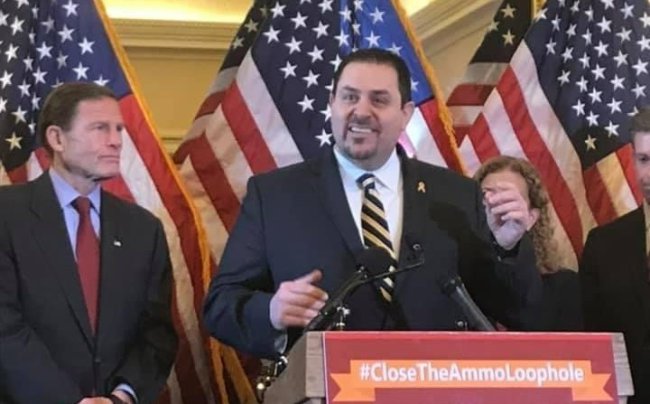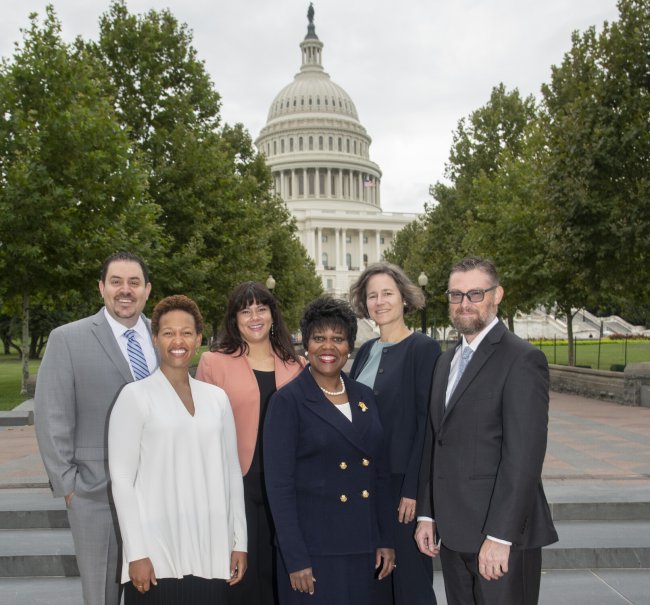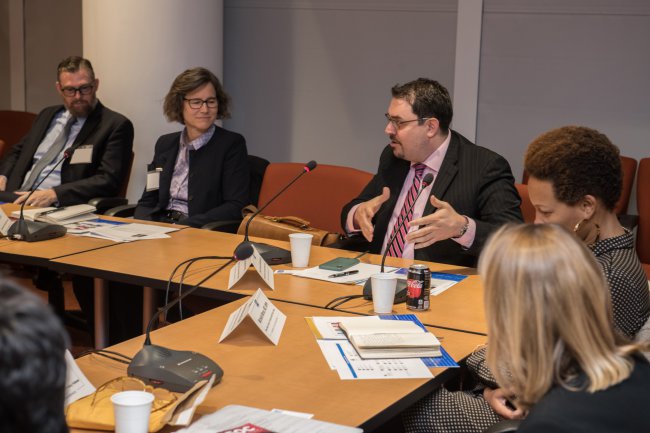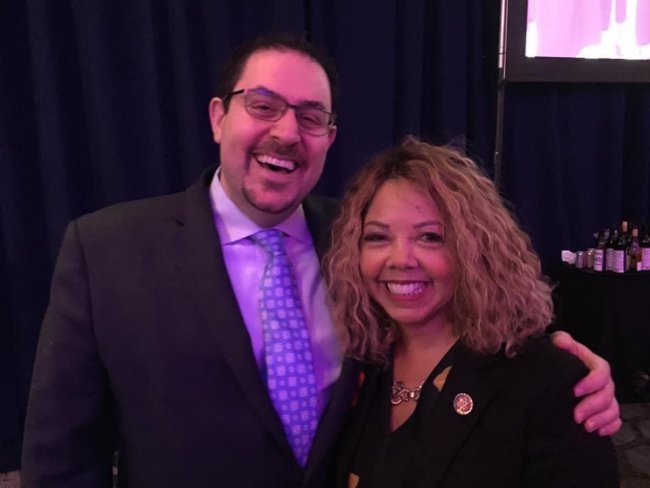From Tragedy to a Purpose-Driven Life: How Dr. Joseph Sakran Transformed Personal Adversity into Public Policy with the RWJF Health Policy Fellowship

Joseph Sakran, 2019-2020 RWJF Health Policy Fellow. Photo courtesy Joseph Sakran
By Carole V. Bell
Clarity sometimes comes through strange and unexpected ways. For Joseph Sakran, the most dramatic revelation came at the age of 17. When he was a senior in high school in Burke, Virginia, attending the first football game of the new year, a serious fight broke out in the stands and it changed the whole trajectory of Sakran’s life. With one stray bullet, he “went from being a healthy high school senior to collateral damage.” In addition to upending his high school senior year just as he was entering the home stretch, the terrible incident gave him a greater purpose. Prior to his injury, Sakran was like any other teen, “just kind of living day by day,” with no idea what he wanted to do in life. Then came the bullet. It left him with a ruptured trachea and injury to his carotid artery. It paralyzed his vocal cord. After over a month in the hospital, he was left with a tracheostomy tube and “beet red scars up and down my neck.” It also led to a mission: he would become a doctor. And eventually it led to a specialty: Sakran became a trauma surgeon, saving people going through the same kind of life-shattering moments he had experienced.
True clarity in how he would go about accomplishing his goals would come later, and the Robert Wood Johnson Foundation (RWJF) Health Policy Fellows Program played a pivotal role. When Sakran applied to the program, he was working at John Hopkins Medicine in Baltimore, Maryland, one of the most prestigious medical facilities in the United States and the world. As a trauma surgeon and Director of Emergency General Surgery at Johns Hopkins Hospital, his role was incredibly intense. That fit with his drive to work at the intersection of medicine, public health, and public policy. Yet even with that position and a graduate degree from Johns Hopkins Bloomberg School of Public Health, there was something missing: “Here I am, I’ve gone to medical school, I’ve done my training to become a surgeon. I had gone to the Harvard Kennedy School of Government where I obtained a public policy degree, but I felt like I still didn’t understand, strategically, the legislative process at the federal level. How does that actually happen? And how do the agencies integrate into that, and how do all the other pieces kind of come together to ensure the sustainability of this 200-plus year experiment?”

The 2019-2020 class of RWJF Fellows.
These questions drove Sakran to the fellowship, and the program delivered that crucial, concrete piece he had been missing: “I felt like because of my work, especially working on a very complex public health problem, it would be very beneficial to understand that legislative process because, a lot of people have the right ideas, but the right idea alone is not going to allow you to be successful.” To really make change, contrary to the old axiom, Sakran wanted and needed to know how the sausage gets made.
This is where the RWJF Health Policy Fellows experience stands out. To show how vision becomes concrete and how policy ideas transform into law, the program provides meaningful insider access into the systems, processes, and the human side of federal policy and lawmaking, inside and outside of Washington, DC. The journey begins with a behind-the-scenes introduction to all the different stakeholders. Sakran, the ultimate hands-on health professional as a trauma surgeon, took that plunge in September 2019.
In addition to walking the halls of Congress and meeting with people in think tanks and government, he went to Atlanta, and spent time at the Centers for Disease Control and Prevention (CDC) and at the historic Morehouse School of Medicine. Those human-to-human interactions were critical both in terms of relationship building and understanding what’s happening where policy meets practice. In addition to insight, that trip yielded a long-term working partnership. Sakran served as a senior fellow at the Satcher Health Leadership Institute at Morehouse, working with Dr. Daniel Dawes, a national leader in health equity. In his view, “that all came about because of the work that started, and the interactions that we had [in the fellowship]. It was incredibly valuable.”
“Clinicians, for many years, looked at our role as being at the bedside. And while I love what I do and taking care of patients, and operating and being able to make one methodical decision after the other to save someone’s life is amazing, there’s a role for us beyond the bedside. And that role can be critical because it goes from impacting one patient at a time to impacting populations.”
Following that three-and-a-half-month orientation, fellows dive into their placements: a period when they become staffers working shoulder to shoulder in an administrative agency or Congressional office. As part of the 2019–2020 RWJF Health Policy Fellows cohort, Sakran went to work in the office of Senator Maggie Hassan (D-NH) just as the COVID-19 crisis was breaking. The work he did there had real impact, informing how agencies dealt with the approval of vaccinations.
Two years later, he’s still struck by the value and uniqueness of that experience. He was not just present but right next to Senator Hassan when she was on the phone with the White House or the CDC Director and Sakran and others would prepare her for those calls.

Members of the 2019-2020 class of RWJF Fellows.
Even for Sakran, who’s had a career full of memorable accomplishments, that was a once in a lifetime opportunity. Still, joining the program was not the easiest decision to make at first. Even with his obvious qualifications, Sakran felt like “a little bit of an odd duck applying for it.” He’s not alone. Historically, there haven’t been as many surgeons going through the fellowship. There are important reasons behind that gap. Surgery is a technical field. The work is, quite literally, hands on. And keeping those skills fresh is imperative. It’s hard to step away from doing surgery for a year. You have to be willing to commit, as Sakran says, “to kind of step out of your practice, which, when you’re in a technical [specialty] is a lot harder than if it’s just theoretical-based knowledge.” There are also potential financial considerations. The fellowship is generous but, depending on how robust one’s practice is, it may not cover a surgeon’s full earning potential for an institution. Yet, there’s incredible rewards for those who take the plunge. And there’s no doubt in his mind that the knowledge and experience gained through the fellowship are well worth the effort.
“Doing this fellowship has allowed me to round out my skill set to be as effective as possible.”
Sakran also believes that it’s not just good but essential for more hands-on health care professionals to have that exposure. Sakran is hoping to start a trend: that more surgeons should be interested in this program. In his view, there’s a broader notion at stake: “Clinicians, for many years, looked at our role as being at the bedside. And while I love what I do and taking care of patients, and operating and being able to make one methodical decision after the other to save someone’s life is amazing, there’s a role for us beyond the bedside. And that role can be critical because it goes from impacting one patient at a time to impacting populations… Whether it’s gun violence or racism or health inequities, or immigration or climate change, health care is interconnected, in what we do, and the social issues our country is facing.”
Putting this belief into practice, Sakran encouraged a colleague and friend, Brian Williams, who’s also a trauma surgeon, to apply. Williams became a fellow in the 2021–2022 class.
There’s another critical piece to the RWJF Health Policy Fellows experience that makes this shift even more urgent. The relationship between the American people and their health care workers is still relatively healthy: “In general, the public trusts us. So, doing this fellowship has allowed me to round out my skill set to be as effective as possible.”

Joseph Sakran with Representative Lucy McBath. Photo courtesy Joseph Sakran
To Sakran, this trust is both crucial and sacred. His life’s work is helping people heal after trauma. What he’s seen as a doctor has further deepened the commitment to reducing the devastation of gun violence that began with a stray bullet. He has devoted his life to promoting responsible gun ownership and safety. Unlike most clinicians and academics, he’s reaching a broad audience, bringing his message to the popular press and to prestigious and widely read publications like Scientific American. Sakran has also testified before Congress, and, most recently, has done so with organizations like Brady United to support the Bipartisan Safer Communities Act, a federal law intended to help states stop individuals who are most at risk of harming themselves or others from accessing firearms and also implement other community-centered violence prevention programs. Just one month after the Uvalde massacre, this legislation ended “nearly three decades of congressional inaction” over how to counter firearm violence. Moving forward, Sakran’s ongoing goal “is to build off the commonality that exists among us as Americans… ten Republican senators and ten Democratic senators came together to make that bill happen.”
That, too, is something Sakran learned hands on through his time as a fellow. Sakran has three prime takeaways from the experience. First, as he’s long said, health care professionals on the front lines are critical to the policy making process. Second, there are a lot of people with the right ideas, but the right idea often doesn’t mean success: “you need to have the right strategy and approach.” Finally, despite the tremendous challenges, “bipartisanship leads to better legislation.”
Learn more about RWJF Health Policy Fellows by following us on LinkedIn! For more information about the upcoming fellowship application, visit our website. We appreciate your support in building a strong and diverse network leaders and maintaining a workforce skilled in health policy. Email info@healthpolicyfellows.org for questions about program opportunities.
